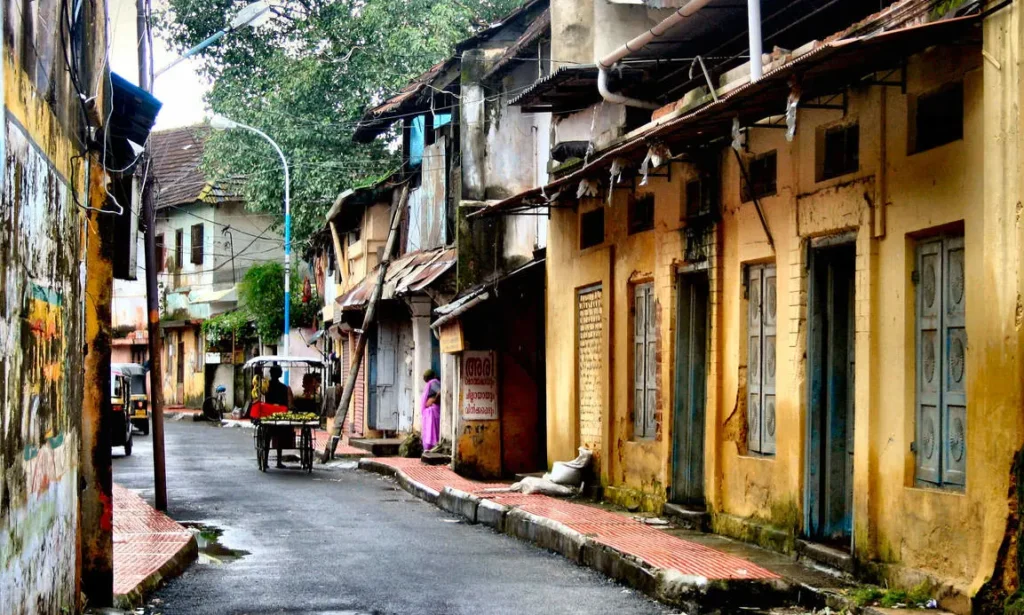
In the bustling heart of Kochi’s old quarter, where the scent of cardamom mingles with sea salt and history hangs heavy in the humid air, lies one of India’s most fascinating cultural treasures. Jew Town, as locals affectionately call it, whispers tales of traders who arrived with pockets full of dreams and ships laden with precious cargo that would change the course of commerce forever.
The story begins nearly two millennia ago, when Jewish merchants first set foot on Kerala’s legendary Malabar Coast. Some historians believe they fled Jerusalem’s destruction in 70 CE, carrying little more than their faith and an unshakeable entrepreneurial spirit. Others arrived in waves centuries later, drawn by tales of the spice trade that made Kochi the “Queen of the Arabian Sea.” These weren’t ordinary refugees seeking shelter—they were savvy traders who understood that black pepper was literally worth its weight in gold in European markets.
The Jewish community flourished in three distinct groups: the ancient Malabari Jews, the Sephardic Jews who fled Spanish persecution in the 16th century, and the Paradesi (foreign) Jews who arrived from various Middle Eastern and European countries. Each brought their own traditions, yet all found common ground in commerce and community.
At the heart of this historic enclave stands the magnificent Paradesi Synagogue, built in 1568 and lovingly maintained for over four centuries. Step inside and you’ll be dazzled by its hand-painted Chinese tiles, each one unique, covering the floor like an intricate patchwork quilt of azure and white. Belgian glass chandeliers cast rainbow patterns across ancient Hebrew inscriptions, while the air carries centuries of whispered prayers and celebrations. The synagogue houses precious artifacts including hand-written Torah scrolls and copper plates granting trading privileges from local maharajas.
For generations, Jewish families dominated Kochi’s spice trade, their warehouses bursting with cardamom, cinnamon, cloves, and the precious black pepper that Europeans craved. They established intricate trading networks stretching from Amsterdam to Aleppo, making Kochi a crucial link in global commerce. Families like the Koders and Halleguas became household names, their influence extending far beyond the narrow lanes of Jew Town.
What made this community remarkable wasn’t just their commercial success, but how they lived harmoniously alongside their Hindu, Muslim, and Christian neighbors. This created a unique cultural fusion that flavored everything from architecture to cuisine. Jewish recipes incorporated local coconut and curry leaves, while Malayalam words crept into Hebrew prayers.
Today, the reality is bittersweet. Only a handful of elderly Jewish families remain in Kochi, their numbers dwindled by waves of migration to Israel following its independence in 1948. The last bar mitzvah was celebrated decades ago, and the community that once numbered in thousands now counts barely a dozen souls.
Yet Jew Town refuses to fade into memory. Its antique shops overflow with brass artifacts and vintage photographs, spice markets still perfume the air with ancient aromas, and the synagogue welcomes thousands of curious visitors annually. Local families have become custodians of Jewish heritage, ensuring stories survive even as the storytellers depart.
The community may be smaller, but their legacy remains aromatic and eternal — a testament to how trade, tolerance, and time can weave the most beautiful and enduring stories of human connection.
Experience the timeless beauty of Jew Town and the Paradesi Synagogue through art. Discover Bharath V’s stunning painting of Jew Town and the Paradesi Synagogue in our art collection – a perfect way to celebrate this remarkable heritage, available as high-quality prints in paper and canvas, in three sizes.